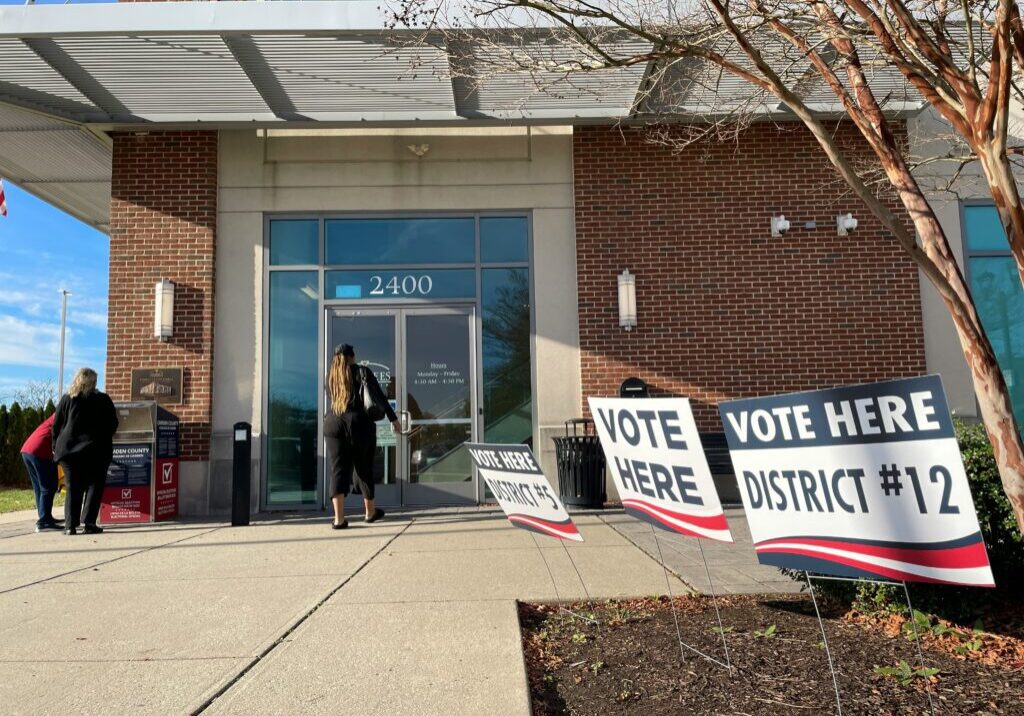A federal appeals court in New Orleans could redraw Louisiana’s racially gerrymandered congressional map to include a second Black-majority district after the U.S. Supreme Court on Monday refused to hear an appeal sought by Attorney General Jeff Landry. The top court’s order was a victory for plaintiffs – including LBP’s Davante Lewis (in his personal capacity) – who had challenged the map approved by the state Legislature that had just one majority-Black district in a state where one-third of the population is Black. It follows a decision earlier this month where justices sided with Black voters in an Alabama congressional redistricting case that had huge implications for Louisiana. CNN’s Tierney Sneed reports.
The order means that the lower court proceedings in the case, which were put on hold by the conservative majority in late June of last year, will restart. At the time, a merits panel of the 5th US Circuit Court of Appeals was preparing for an expedited review of a judge’s ruling that said that the 5-1 congressional plan likely violated the Voting Rights Act. The new order from the justices noted that their latest move “will allow the matter to proceed before the Court of Appeals for the Fifth Circuit for review in the ordinary course and in advance of the 2024 congressional elections in Louisiana.”
The Advocate’s Sam Karlin reports that the ruling is a major victory for those who said the Legislature’s map disenfranchised Black voters.
The NAACP Legal Defense Fund, Black voters and others had argued the Supreme Court should send the case back to the 5th Circuit. “I do feel optimistic we are going to realize a second (majority-Black) district through this process,” said Ashley Shelton, head of the Power Coalition for Equity and Justice, one of the groups challenging the maps. “It’s a huge victory for the people of Louisiana.”
Revenue stability on the ballot
The Legislature’s adoption of a temporary 0.45% state sales tax in 2018 has helped stabilize the state budget and allowed for new investments in education, health care services, public safety and other priorities. But that tax, which generates approximately $450 million per year, expires in 2025, and the next governor will help decide whether it should be renewed or allowed to expire. As The Advocate’s Tyler Bridges reports, all the Republican candidates running for governor want the tax to expire, while no-party candidate Hunter Lundy and Democrat Shawn Wilson favor renewal.
Lundy, in supporting a renewed sales tax, said Louisiana needs to pay more for teachers, police and firefighters. “We got our priorities messed up,” he said. Wilson, who spent the past seven years as Edwards’ transportation secretary, said allowing the tax to lapse could cause budget deficits in the coming years. “We’re investing those surpluses wisely, building infrastructure, making one-time investments on things that will help drive businesses and put bridges into commerce for you and your product,” he said.
Attorney General Jeff Landry, widely considered the front-runner, skipped the debate. Louisiana has an inadequate and regressive tax structure that has resulted in basic public services being underfunded and people at the bottom of the income ladder paying a higher percentage of their income in state and local taxes than those at the very top. LBP provides a better path forward.
Another dismal Kids Count ranking
The annual Kids Count rankings (by the Annie E. Casey Foundation and Agenda for Children) came out last week, and Louisiana once again finished near the bottom at 49th. An Advocate editorial looks at the reasons behind the state’s poor performance and finds a familiar culprit – poverty.
Twenty-seven percent of Louisiana’s households with children live in poverty, the report found — the same percentage as in the previous report, but still 10 points above the national average. On numerous measures of family well-being, from high costs of housing to limited full-time employment for parents, it’s hard to envision how things could be much worse. But in some ways, things have deteriorated. An estimated 11% of Louisiana’s teenagers are not in school and not working, representing a growing lost generation whose capacities to succeed in life are being stunted right now, on the cusp of adulthood.
Deficit hypocrisy
Deficit reduction was a key demand of House Republicans in last month’s deal to raise the nation’s debt ceiling and avoid economic catastrophe. But the same GOP lawmakers were simultaneously pushing for an extension of trillions of dollars in tax cuts that would increase the gap between federal revenues and spending. The Washington Post’s Catherine Rampell explains:
This month, the GOP-controlled House Ways and Means Committee introduced a sweeping tax bill called the American Families and Jobs Act. While that legislation would do little to help “families” — it would not, for example, revive the expanded child tax credit, which had slashed child-poverty levels before its recent expiration — it would cut tax levels pretty much across the board for the next few years. The legislation would restore some large business tax breaks that had recently lapsed, even making those tax cuts retroactive. It would also increase the standard deduction.
Number of the Day
1,168 – Deaths reported in Louisiana’s prison, jails and youth detention centers from 2015 to 2021, a figure that includes violent deaths, overdoses, accidents and medical issues. (Source: Loyola University via The Advocate)
